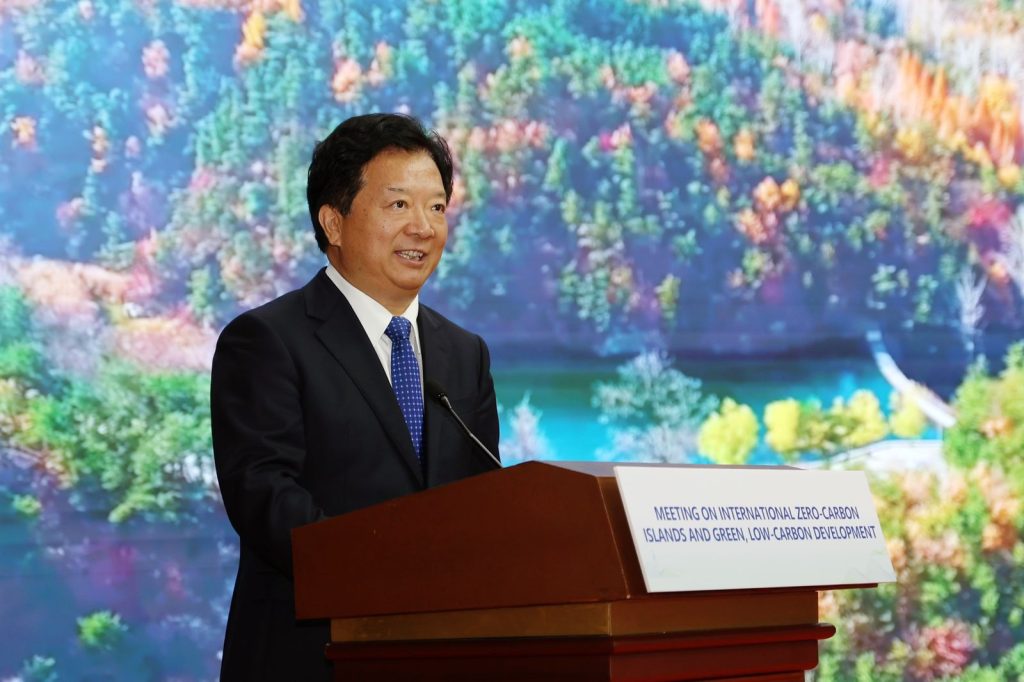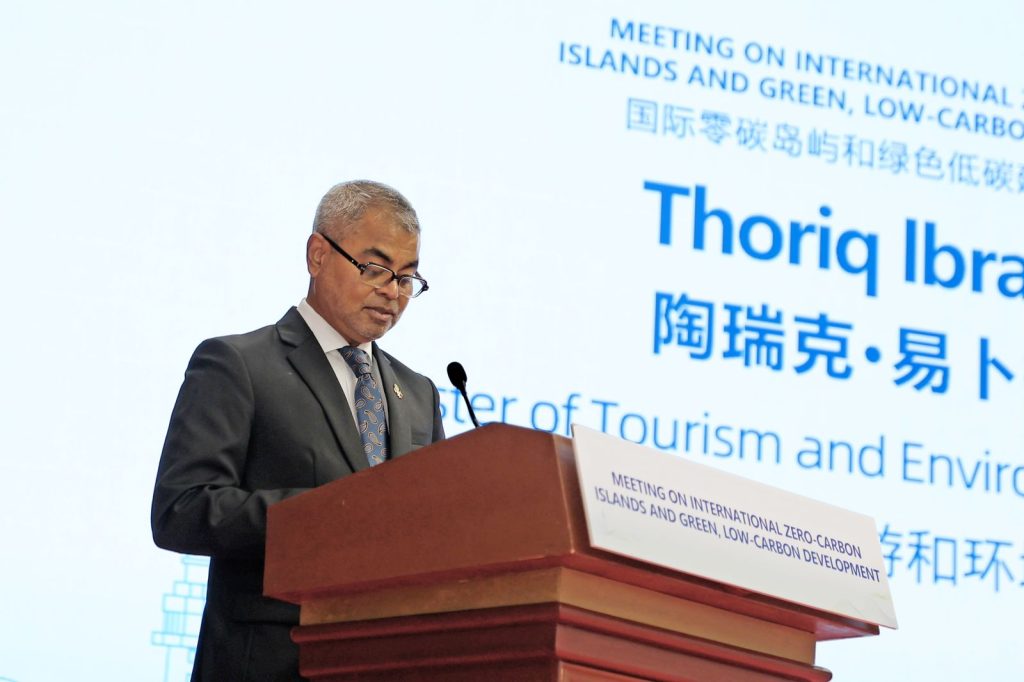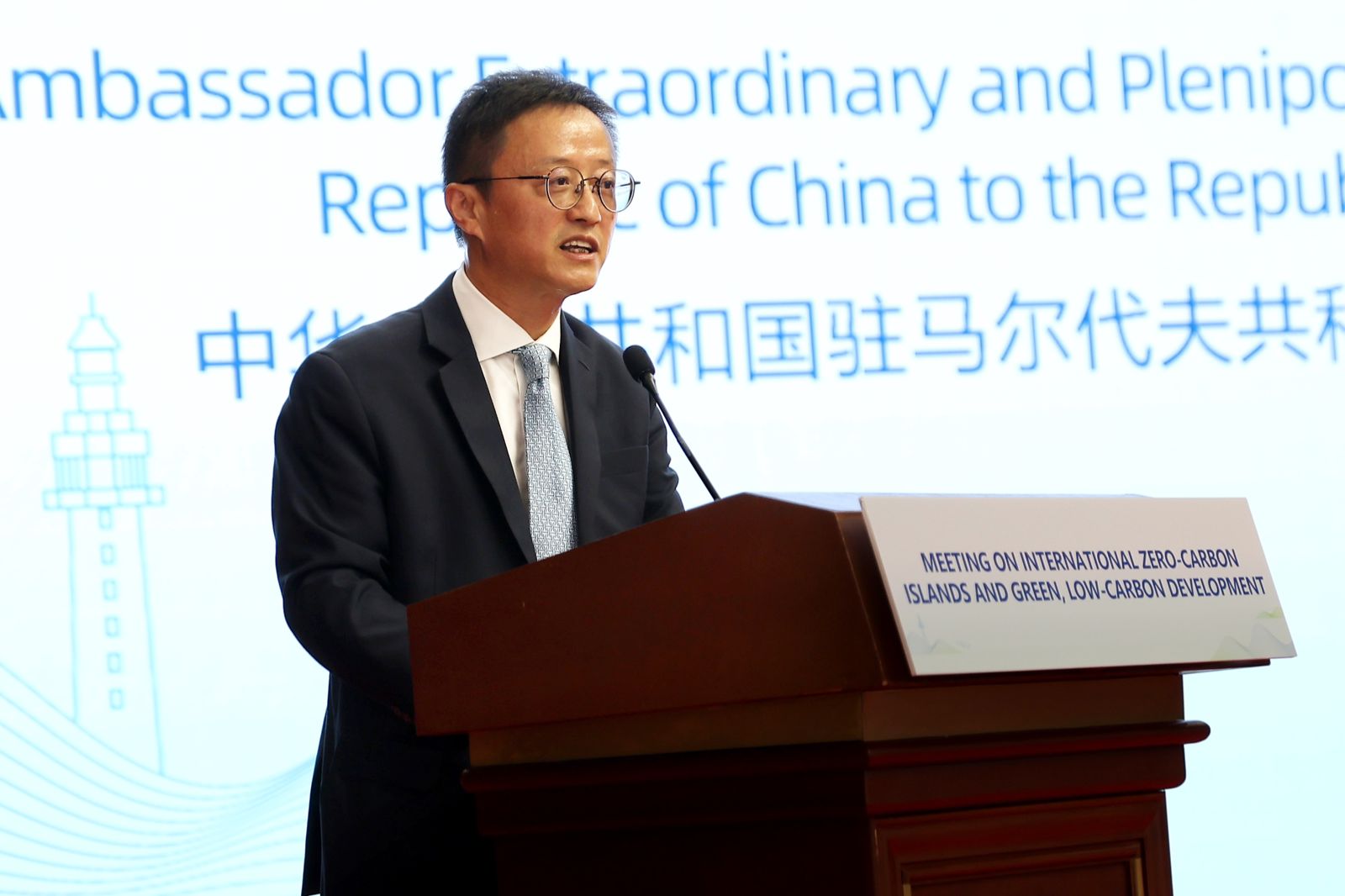
MALÉ, May 12, 2025 – Chinese Ambassador to the Maldives Kong Xianhua joined Maldivian officials today at a significant environmental conference aimed at promoting zero-carbon development across island nations.
The “International Zero-Carbon Islands and Green Low-Carbon Development Exchange Conference,” jointly hosted by China’s Yantai City and the Maldivian Ministry of Tourism and Environment, brought together approximately 80 representatives from both countries to discuss sustainable practices and climate initiatives.
Building on Climate Commitments
During the conference at Villa College in Malé, Ambassador Kong highlighted China’s commitment to its “dual carbon” goals – peaking carbon dioxide emissions before 2030 and achieving carbon neutrality before 2060. He noted that China has built “the world’s largest and fastest-growing renewable energy system and the most comprehensive and advanced new energy industrial chain.”
“Climate change is a common challenge facing all humankind, bearing on the future of our planet and the destiny of humanity,” said Ambassador Kong in his remarks. “Both China and the Maldives are among the countries most vulnerable to climate change, and we feel its impacts deeply.”
Yantai City Leads Zero-Carbon Initiative
Zheng Deyan, Deputy Secretary of the CPC Yantai Municipal Committee and Mayor of Yantai, presented Changdao as a model for zero-carbon island development. He shared Yantai’s experiences and extended an invitation to Maldivian institutions, universities, and enterprises to join the International Zero-Carbon Island Cooperation Organization.

The organization, launched at COP29 in Baku last year, aims to facilitate international exchanges and collaboration among island stakeholders to address climate change and pursue sustainable development.
Practical Cooperation Projects Launched
The conference witnessed several tangible outcomes, including the launch of a “Smart Integrated Energy Management Joint Laboratory” between Yantai Dongfang Electric and the Maldives Electricity and Water Authority (STELCO), aimed at cultivating power professionals for the Maldives. Additionally, Trip.com Group signed an eco-tourism cooperation agreement with Maldivian partners.
Chinese companies including Dongfang Electronics, Tayho New Materials, and LONGi Green Energy presented solutions tailored for island nations in areas such as green energy, new materials, and technical training.
Maldives Embraces Green Partnership
Maldivian Minister of Tourism and Environment Thoriq Ibrahim emphasized the importance of the initiative for small island developing states like the Maldives.

“The International Zero-Carbon Islands Cooperation Initiative provides a valuable opportunity for the sustainable development of small island developing states,” said Minister Ibrahim. He expressed the Maldives’ interest in deepening cooperation with China in clean energy, scientific research, and capacity building.
Ambassador Kong noted that Chinese companies already contribute 36.7% of the Maldives’ renewable energy generation and nearly 45% of its photovoltaic capacity. He expressed confidence that with continued cooperation, President Muizzu’s goal to generate 33 percent of the country’s electricity through renewable sources by 2028 and to plant 5 million trees is achievable.
The conference marks a significant step forward in environmental cooperation between China and the Maldives, with both sides committed to preserving the natural beauty of the island nation while pursuing sustainable development models.
